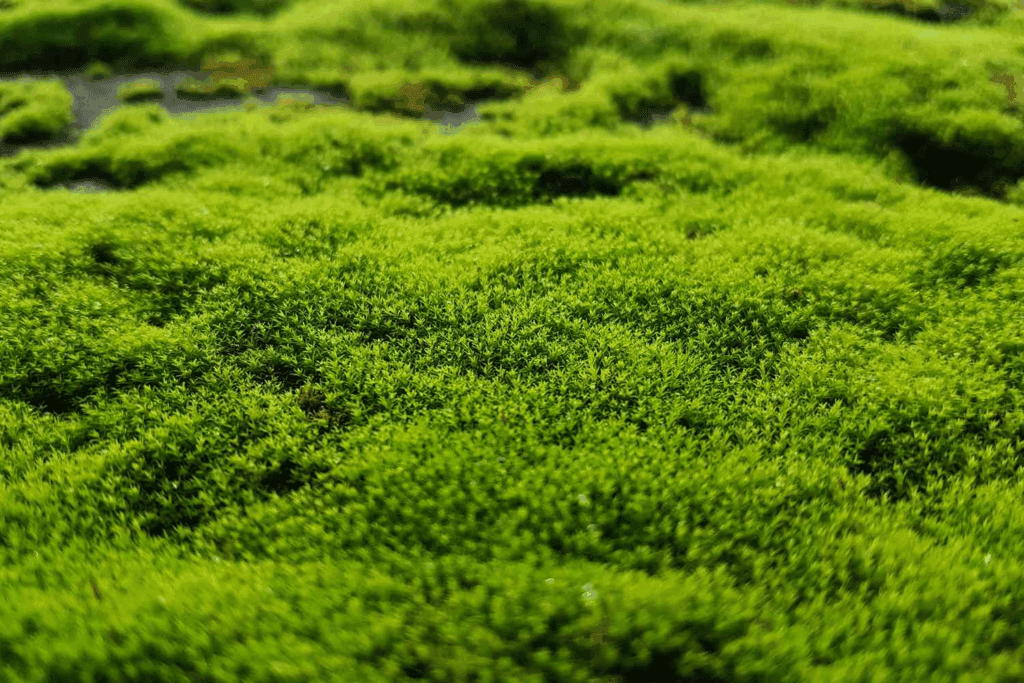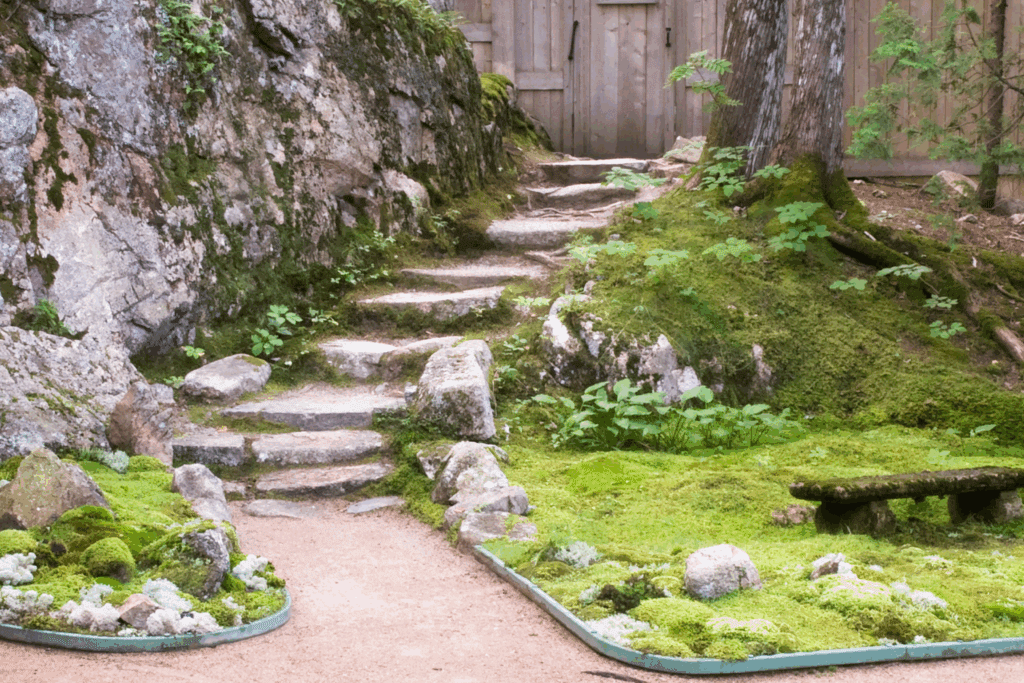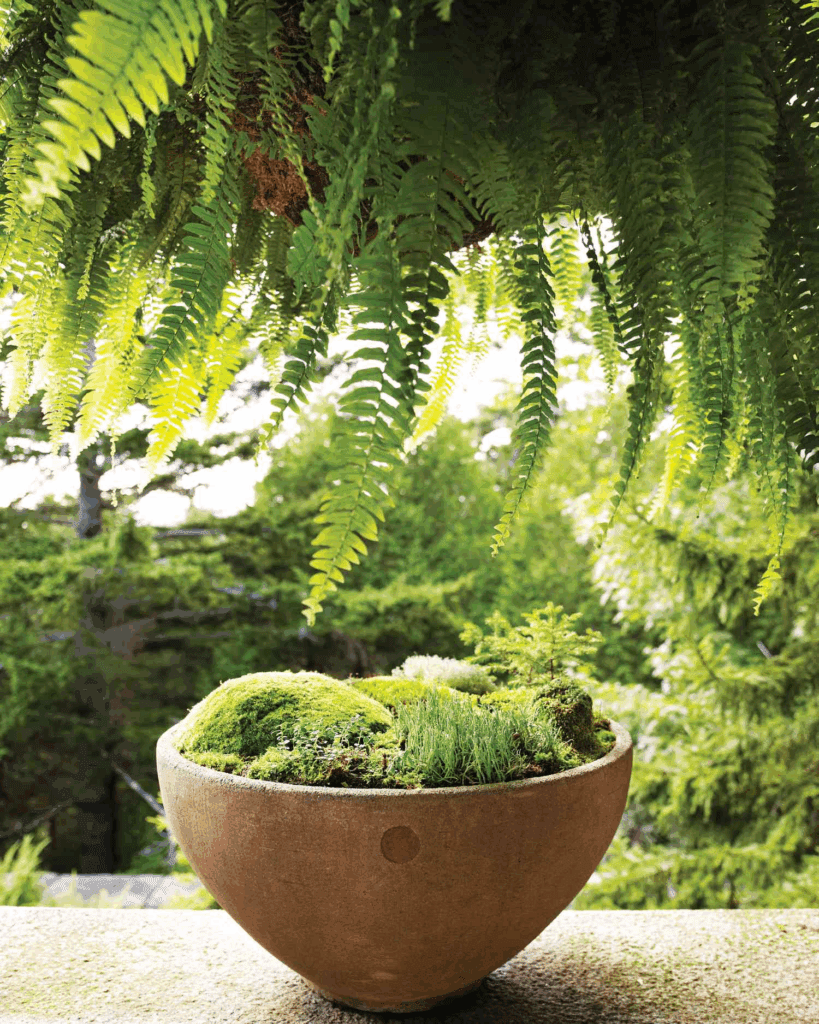There’s something quietly magical about moss. You’ve probably seen it — that soft, green layer clinging to stone walls, nestling under trees, or carpeting a shady patch of ground like nature’s own velvet rug. Moss doesn’t shout for attention, but once you notice it, it’s hard to forget.
And here’s the good news: moss isn’t just for ancient forests and Zen gardens. It’s surprisingly easy to grow at home — no lawn mower, no fertilizer, no constant fussing. If your garden has a quiet corner or a damp spot where grass just gives up, moss might be exactly what you need.
Let’s walk through how to plant and care for moss so it can thrive — and make your space feel a little more grounded, a little more timeless.
Why Moss?
Moss is the kind of plant that doesn’t demand much, yet gives so much in return.
- It stays green all year.
- It doesn’t need mowing, chemicals, or fertilizer.
- It loves the shade.
- It holds soil in place, especially on slopes.
- It instantly adds a calm, natural feel — like something out of a peaceful woodland or a Japanese garden.
It also works beautifully in all kinds of spaces — from a modern patio to a quiet backyard path.
A Few Good Moss Types

Not all moss is the same. Here are a few to know about:
Sheet Moss
Soft and flat, like a green carpet. Great for shady ground cover.
Cushion Moss
Looks like little green pillows. Adds texture in rock gardens or as a focal point.
Haircap Moss
Stands upright with a bristly look. Loves damp, woodland-style areas.
Fern Moss
Feathery and fast-growing. Perfect if you want that wild, natural feel.
Where & When to Plant
Moss loves moisture, shade, and compact soil. It won’t thrive in bright, dry, sandy spots — but if you’ve got a shady corner, you’re in luck.
Best time to plant?
Spring or fall. Temperatures are mild and moisture levels are good.
Best spot?
Shaded or partly shaded areas — under trees, near walls, or in places where grass has always struggled.
Best soil?
Moist, compact, and slightly acidic (pH around 5.0–5.5). No need for loose, fluffy soil here — moss prefers it a little packed.
How to Plant Moss
There are two simple ways: laying it down as sheets or clumps, or painting it on using the “slurry” method.
If You’re Using Moss Sheets or Clumps

You’ll need:
- Moss (bought or foraged responsibly)
- A rake or hoe
- A spray bottle or hose with mist setting
- Optional: soil pH test kit
Step-by-step:
- Prep the ground
Clear out weeds, leaves, or grass. Lightly rake the area flat. - Test the soil pH
Use a kit if you want to be sure. If it’s not acidic enough, add compost or garden sulfur. - Lay the moss down
Place sheets or clumps tightly together and press them in so they touch the soil. - Water thoroughly
Mist the area well right after planting. - Keep it moist
Mist every day for the first few weeks so the moss settles in and starts growing.
If You’re Using the Slurry Method
This is great for rocks, logs, or walls — anywhere flat moss won’t stay put.
What to do:
Blend 2 cups of moss with 2 cups of buttermilk (or plain yogurt) and 1 cup of water. It’ll look like green paint.
Then just brush or pour the mixture where you want moss to grow. Mist the area daily and be patient — it takes time to sprout, but it works.
Caring for Your Moss

Moss doesn’t ask for much. But a little routine care helps it stay lush and healthy.
Watering
Keep it damp, especially if it hasn’t rained in a while. A fine mist works best — strong sprays can knock it loose.
Clearing debris
Gently remove leaves or twigs by hand or with a soft brush. Don’t rake it.
Trimming
If it starts looking uneven, trim it with scissors for a more uniform look.
Dealing with sunlight
If it starts drying out or browning, it might be getting too much sun. Add some shade with nearby plants or a light cloth.
What Could Go Wrong (and How to Fix It)
| Problem | What’s likely going on | What helps |
|---|---|---|
| Yellow or brown spots | Too much sun or not enough water | Add shade and increase misting |
| Moss won’t stay put | Didn’t press in well or too dry | Press down firmly and mist more |
| Weeds sneaking in | Not enough maintenance | Pull weeds early and check your soil’s pH |
| Mold or algae | Stagnant air or too wet | Thin out moss or improve airflow |
Why Moss Is Worth It
If you’re looking for something that feels ancient, peaceful, and real — moss delivers. It’s beautiful, but it’s also practical:
- No mowing or fertilizing
- Holds in moisture and protects the soil
- Welcomes tiny wildlife
- Makes quiet corners feel intentional and alive
Moss is like the garden’s whisper — gentle, steady, and grounding. Give it a good start, and it will reward you for years with beauty that asks almost nothing in return.
Also Read : A Fresh Start: How to Plant Flowers and Grow a Vibrant Garden (Even If You’re a Beginner)





